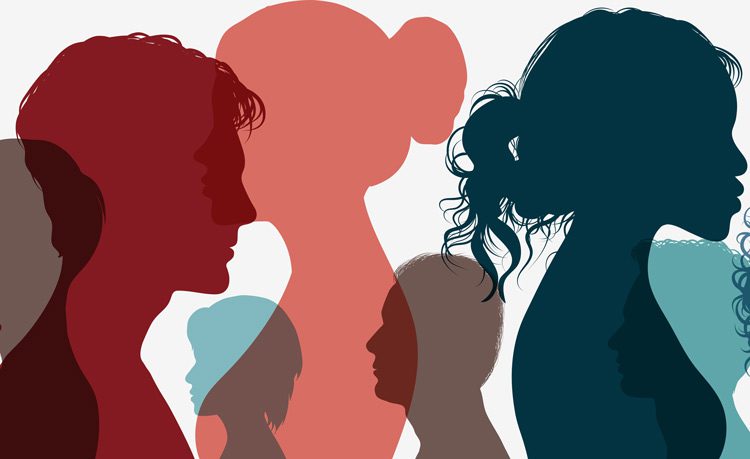In addition to dealing with struggles presented by mental illnesses themselves, those who have been diagnosed also face the perception that they are not “normal.” In fact, this stigma is based on a myth, as mental illnesses are actually very common.
The Stigma of Mental Illness
According to the National Institute of Mental Health:
- Nearly 20 percent of American adults currently have one or more mental health conditions.
- Nearly 50 percent of American teenagers experience at least one mental health diagnosis in adolescence.
What Causes Mental Illness?
The Mayo Clinic lists several factors that can lead to mental illnesses:
- Hereditary traits – researchers have found that a person who has blood relatives with mental illness is more likely to develop mental illness themselves.
- Exposure while in utero – a fetus that is exposed to a large amount of stress, toxins, alcohol, or drugs is more likely to develop a mental health condition after birth.
- Brain chemistry – our brains create neurotransmitters, which are chemicals that help our minds to function in a healthy way. If a person’s neural pathways aren’t functioning properly in how they carry the signals, or if the brain isn’t making the right amount of a certain chemical, this can create a mental health issue.
What Places a Person At-Risk for Mental Illness?
In addition to the causes listed above, there are also certain risk factors that heighten a person’s chances of developing a mental illness:
- Stress – money trouble, loss of a loved one, or the end of an important relationship
- A chronic medical condition like diabetes
- A traumatic brain injury
- Traumatic experiences like natural disasters, combat, or living in unsafe conditions
- Substance abuse
- Suffering neglect or abuse in childhood
- Having a limited support system
- Personal history of mental illness
The Most Common Mental Health Diagnoses
Not only are there a wide variety of mental health conditions, but there is also a wide range of severities, from fairly mild to utterly debilitating. According to the National Alliance for Mental Illness, the most common mental health conditions that are diagnosed each year are:
- Anxiety – impacting around 19 percent of people in the United States
- Depression – impacting about 8 percent of the population
- Post-traumatic stress disorder (PTSD) – impacting roughly 4 percent of Americans
Conditions including obsessive compulsive disorder, schizophrenia, and bipolar disorder each impact only around 1 percent of the total American population each year.
Preventing Mental Illness
While it is not always possible to prevent mental illnesses, some steps can be taken to reduce the risk of developing a mental illness and to keep mild symptoms from becoming more severe:
- Avoid substance use – people who already have a mental health condition should work with their mental health providers to access effective treatment; alcohol and drugs may relieve symptoms in the short term but will ultimately make the condition worse and also add the complication of addiction.
- Engage in meaningful activities – when a person feels a sense of purpose and connection in life, their mental health improves.
- Reach out for mental health support – it can be difficult to ask for help, but if you are experiencing signs of a potential mental illness, it is critical to connect to your support system as soon as possible, including family, friends, and professionals.
- Live a healthy lifestyle – mental and physical health are intimately connected, so getting adequate sleep, exercise, and proper nutrition can help to keep both the mind and the body healthy.
Guidance for Loved Ones
Friends and family may be able to recognize that something is wrong before the person whose mental health is suffering. According to the American Psychological Association, it is important to be loving, supportive, and non-judgmental, while noting any of the following:
- Signs of social withdrawal
- Academic or work problems
- Memory or cognitive issues
- Poor grasp on reality
- Changes in hygiene, appetite, or sleep patterns
- Increased substance use
- Extremes in mood (potentially including suicidal thoughts)
We Can Help
While it may be uncomfortable, friends and family must be ready to have conversations about suicide. Though people sometimes worry that raising the question might itself make a loved one suicidal, often it has the opposite effect. Putting the topic on the table can make it safe for a person who has been struggling to share how they have been feeling and to allow for safety planning to prevent the individual from ending their life.
If you have questions about mental illness or would like to receive help for yourself or a loved one, Highland Hospital has a team of professionals who are eager to assist.










